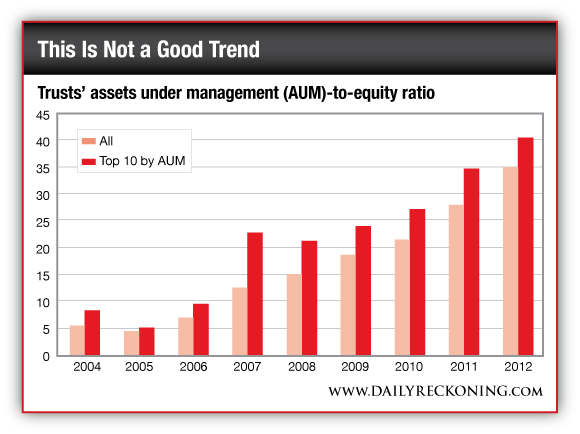Three trends in wealth management
Post on: 16 Март, 2015 No Comment

Image Credit: Supplied
Everyone has one
A wealth adviser in the past was for those obviously wealthy. Now everyone has one. Jessica Cook, Private Client Adviser at AES International, a global wealth management service, says, “I think in the past access to wealth managers was only for the HNWI. Now it is more common for all individuals to seek someone for
financial advice, especially when you are living abroad.”
This has taken place because of a change in attitude of both clients and advisers. Clients feel they need advice and advisers believe that it’s never early to start financial planning.
“I think everyone should have a financial adviser who is an expert from the outside that takes a bird’s eye view of the situation,” says Cook.
They are starting younger, perhaps due to technology (see point three). “I think it should be taught in school. The younger you meet a financial adviser, the better,” she says.
However, one adviser may not be enough. Last year’s Investor Attitudes report by Friends Provident states, “On average, only 30 per cent of respondents in the UAE are likely to seek advice solely from a financial adviser.”
Research also shows that while a large number of respondents undertake research themselves before making a financial decision, few would rely solely on their adviser before executing transactions. Financial publications and websites are popular resources too.
Cook says many people are turning to speciality advisers for particular areas of finance. “They can help you with day-to-day retirement or education [solutions]. Sometimes, particularly for millionaires, tax planning can be so complex. In such situations companies would bring in an expert. At other times you need particular knowledge of the country they are repatriating back to. Tax rules change all the time. Specialist advice is something you see more of.”
Transparent fees
What’s in it for you, we ask, quite frankly. Transparency brings better relationships. Cook says, “More so than in the past, clients expect more transparency from the adviser in advice, products and services. It is common for advisers to charge fees instead of commission to manage an individual’s money.

“This creates mutual interest and long-standing relationships. And it creates a holistic approach to financial planning rather than selling a product.”
Traditionally, financial or investment advisers charge a percentage of your account’s value. While this varies depending on the size of assets, the method is said to be good for the client because as your account grows, so do the fees.
Financial salespersons, on the other hand, charge commission, which means each time they sell that particular product, they earn money. It does not cost the client anything — in fact, many a times, they will pass a percentage of the commission back to the client as an incentive — but it does mean that they have a special interest in recommending some products over others. Many advisers have a fee-based charging system that combines percentage and commission.
Most impartial is the hourly rate for financial advice, more common with super-specialised categories. Specialised advisers also charge project-based fees. People with large accounts prefer to pay quarterly or annual retainers for ongoing advice.
Is there an app for it?
Technology is changing the way the business of personal finance is conducted. There are several ways to make your life easier. StatementRewards by BillShrink.com, for instance, promises online-banking customers personalised tips for saving money based on spending patterns and current payments. So the next time you visit your bank account online, you may be the focus of targeted advertising such as discount gift cards from stores that you have liked in the past. Another website, HiddenLevers.com uses infographics to show how larger events such as oil-price hikes, inflation or a currency crash may affect your investments. Like comparing features while shopping for electronics, you can pick 20 different scenarios to see their impact on various economic trends.
This month, Tink, a personal finance mobile app, raised $4 million (about Dh14.7 million) to expand internationally. Launched in September in Sweden last year, Tink’s iOS and Android app allows users to control their personal finances by linking it to their bank accounts and credit cards. It provides insights into spending habits via a news-feed style stream. According to the 2014 Teens and Personal Finance survey conducted in the US, slightly more teen boys than girls use some sort of budgeting tool (75 per cent versus 71 per cent), such as a smartphone app.














